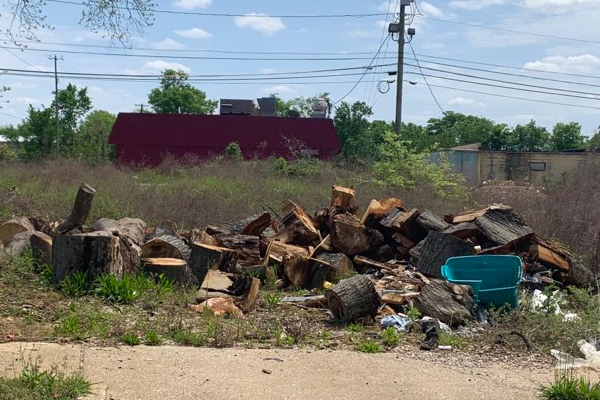The Birmingham City Council has set several legislative priorities for 2023 aimed at making it easier for the city to take control of certain pieces of property.
The council adopted the priorities on Tuesday. Birmingham Mayor Randall Woodfin’s office approved the council’s new set of priorities without recommendation, according to Birmingham Watch. The priorities will direct the council’s lobbying efforts in Montgomery.
One of the priorities suggested an amendment to the Alabama Land Bank Act (ALBA), which the Alabama Legislature initially passed in 2009. The ALBA created the Alabama Land Bank Authority Board, which can acquire tax-delinquent property.
The board can also obtain other public property from local governments or receive property via voluntary donations and purchases with private owners.
The ALBA allows the Birmingham Land Bank Authority, which was created in 2014 with the expressed purpose of fighting urban blight, to acquire tax-delinquent properties purchased by the state from Jefferson County.
However, Birmingham City Councilwoman Carol Clarke told the press that Jefferson County has been selling delinquent properties to the private sector instead, which prevents the Birmingham Land Bank Authority from acquiring them.
The Birmingham City Council seeks to change the ALBA to allow local land banks to acquire tax-delinquent properties.
Clarke said the proposed amendment if enacted, would “put [the City of Birmingham] in the queue” to acquire properties through the tax lien sale process. A tax lien is the government’s legal claim against the property from owners who fail to pay a tax debt.
State Sen. Linda Coleman-Madison (D-Birmingham) and State Rep. Neil Rafferty (D-Birmingham) have already sponsored the proposed amendment in the state legislature.
Related legislative priorities approved by the council include a bill to grant Birmingham the authority to enact provisions for vacant property registration and two others to establish foreclosure authorities: one for municipal liens and another for demolition and other liens.
The first bill would establish “a procedure for [Birmingham] to conduct a judicial in rem foreclosure of non-owner-occupied property that does not comply with local building codes.” An “in-rem” judgment of foreclosure means the bank would only acquire the property and cannot sue the property owner for money.
The second bill would “grant authority to action toward properties with liens, that are foreclosed, or are a nuisance.”
Other legislative priorities are as follows:
An exhibition driving bill to increase penalties on drivers disturbing the peace by “creating or causing unnecessary engine noise, tire squeal, skid or slide upon acceleration or braking” sponsored by State Rep. Allen Treadaway (R-Morris) and State Sen. Roger Smitherman (D-Birmingham).
A bill to cap liability on Birmingham agents, officers and other employees for damage or injury while “acting in the line and scope of his or her duty.”
Acquiring an automated photographic traffic enforcement system.
Amending the Alabama Competetive Bid Law to include computer programs, software applications and automotive parts as exceptions for the competitive bidding requirements.
Bills to raise fines for littering the weed abatement.
Bills that tie vehicle-related fines to supporting mechanisms.
Administrative warrants to support code enforcement.
Creating a Birmingham Housing Trust Fund structured closely to the State Housing Trust Fund.
Expand state low-income tax credits.
Obtain funding for the Affordable Housing Trust Fund.
To connect with the author of this story or to comment, email will.blakely@1819news.com or find him on Twitter and Facebook.
Don’t miss out! Subscribe to our newsletter and get our top stories every weekday morning.










